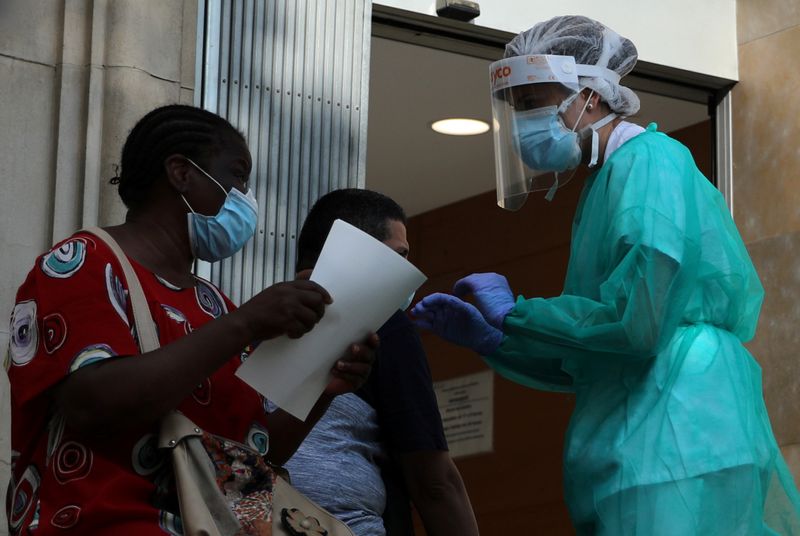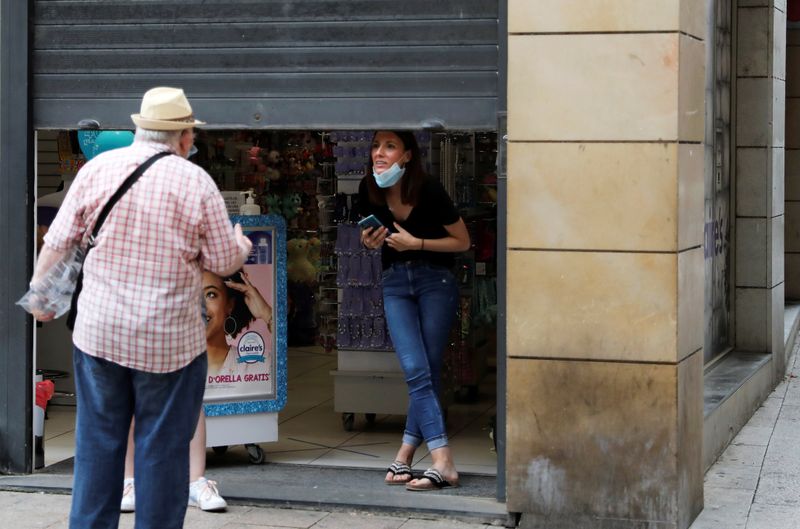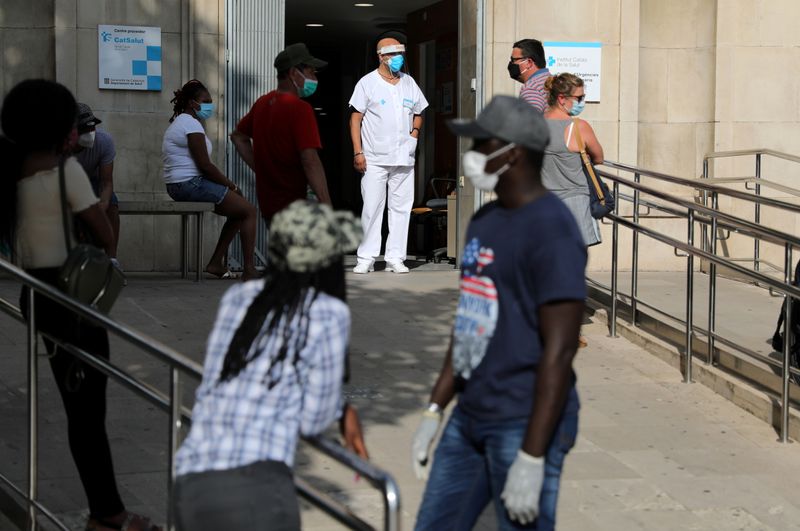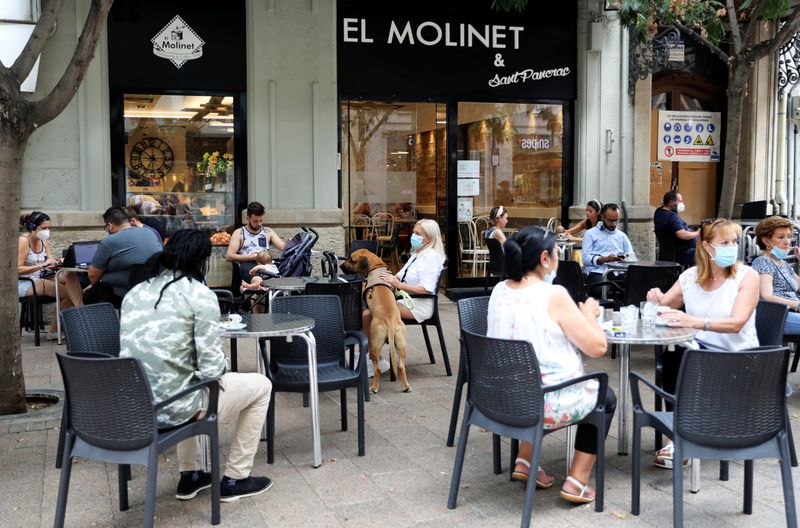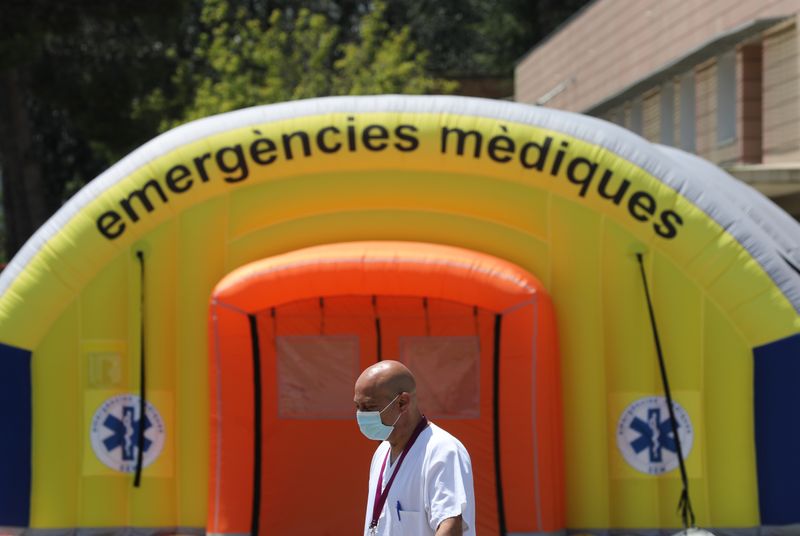LLEIDA, Spain/BARCELONA (Reuters) – Spain’s Catalonia approved on Monday a decree giving it legal backing to place restrictions on the city of Lleida and its surroundings to stem a surge in coronavirus infections, defying a judge’s earlier ruling that such an order was unlawful.
After an extraordinary late night cabinet meeting, the regional government said it would seek legal authorisation allowing it to limit people’s movements, adding that on Tuesday it could confine Lleida area inhabitants at home.
Earlier on Monday, Catalonia leader Quim Torra urged the 160,000 people living in an area where coronavirus cases have increased to stay home, defying a court ruling which rejected a mandatory home confinement.
The contradicting orders sowed confusion and anger in the area. Businesses feared for their survival and the mayor said he was at a loss about what to tell people.
Spain, which has been one of the European countries worst affected by the coronavirus, lifted a strict nationwide lockdown last month as the pandemic seemed to have come under control.
But with dozens of new clusters, local authorities across Spain are scrambling to take new measures, confining small areas or making it mandatory to wear a mask in public.
“We don’t agree with this court ruling. We don’t accept it,” Torra, who leads Catalonia’s pro-independence regional government, told a news conference on Monday after Judge Elena Garcia-Munoz Alarcos threw out the planned mandatory lockdown.
In Lleida, which lies about 180 km (110 miles) west of Barcelona, the streets were half empty and some shops and bars closed. People were angry about the uncertainty.
“They don’t know what they’re doing,” said Anna, a bar manager. “It’s one step forward and one step back, and it’s hurting our businesses, 100 percent.”
City mayor Miquel Pueyo told Reuters he was “perplexed” by the judge’s ruling, but also felt unable to tell people whether to stay at home or follow the legal decision. He himself supported home confinement if it came with more doctors, virus tracking measures and financial aid for the most-hit sectors.
‘UNCERTAINTY’
Another Lleida resident, store manager Lidia, said she did not agree with calls to stay home. “It isn’t fair to close shops again and to be full of uncertainty,” she said.
People in Lleida have been banned from leaving the area since July 4 because of a surge in cases there, except for specific reasons such as going to or from work. That travel ban will not be lifted, but the judge said home confinement was a step too far and had not gone through the right channels.
The dispute comes as the number of coronavirus cases is on the rise in Spain, in particular in Catalonia, and reflects the broader debate in Europe and beyond over what measures to take to tackle localised clusters.
More than 28,400 people have died in the Spain from COVID-19. Since dropping to an average of 132 in June, the number of coronavirus cases diagnosed every day has accelerated in July, reaching 333 on Friday. There are more than 100 active clusters, many of them in Catalonia.
Also reacting to new clusters, the regions of La Rioja, Navarra, Aragon and Andalusia plan to make it compulsory to wear face masks indoors and outdoors, following a similar move in Catalonia, the Balearic Islands and Extremadura.
In the rest of the country, masks are compulsory when it is impossible to be at least 1.5 meters away from other people. Senior health ministry sources said the government had no plans to make them mandatory everywhere nationwide.
“If you walk the dog at 7 a.m. and there is no one around it doesn’t make much sense to wear a mask,” one of the sources told reporters, adding that most outbreaks started in families and homes, weddings and celebrations, rather than on the street.
(Reporting by Joan Faus in Barcelona, Nacho Doce in Lleida, Enrique Calvo in Mallorca, Clara-Laeila Laudette, Emma Pinedo, Inti Landauro, Ingrid Melander and Nathan Allen in Madrid; Writing by Ingrid Melander; Editing by Angus MacSwan and Matthew Lewis)

